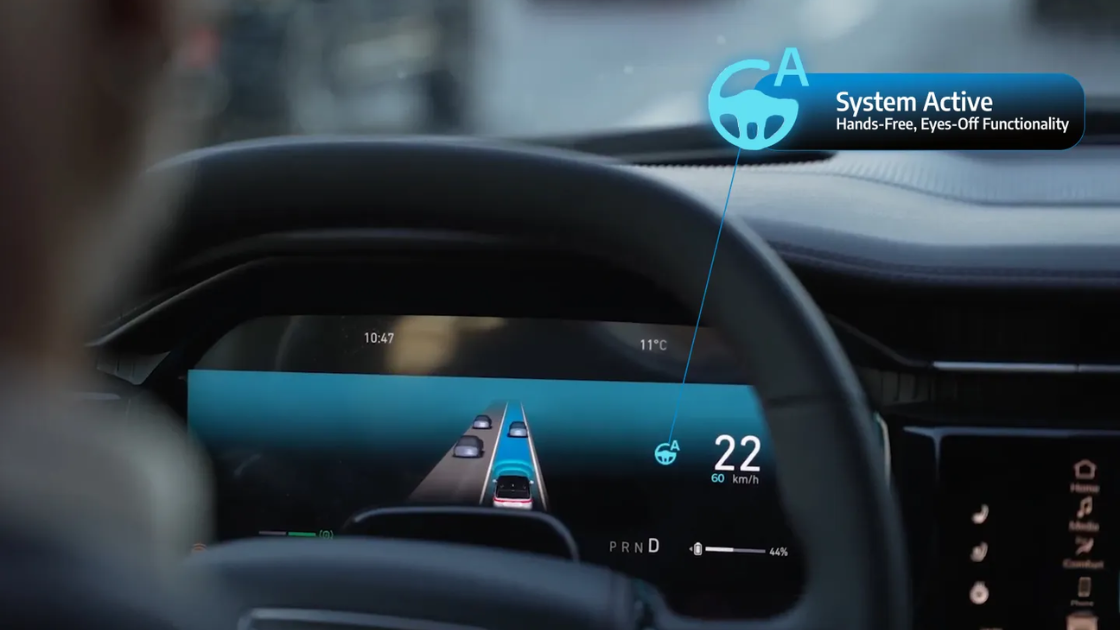As the week winds down, we’re wrapping up the latest headlines in the world of tech. From Quantum Computing breakthroughs to AI on Spotify and more, we have you covered. Stay connected to what’s happening and check out this week’s Tech News!
Stellantis Introduces STLA AutoDrive but Delays Launch

Stellantis, the parent company of Jeep, Dodge, and Ram, has announced STLA AutoDrive, its first “hands-free, eyes-off” partially autonomous driving feature, designed for stop-and-go traffic. Despite being fully developed, the automaker is holding off on launching it due to market and regulatory challenges. The Level 3+ system, capable of operating in low-speed conditions and adapting over time, uses self-cleaning sensors like cameras, radar, and ultrasonic sensors for various driver-assist functions. However, concerns remain about the handoff between automation and human drivers, with studies suggesting potential risks. While rivals like Mercedes-Benz, Ford, and GM pursue similar technology, most automakers remain cautious, balancing innovation with safety and regulatory hurdles.
Amazon MGM Takes Creative Control of James Bond Franchise

After years of tension, Barbara Broccoli and Amazon MGM have reached an agreement to move forward with the James Bond franchise. A new joint venture will give Amazon MGM full creative control, while Broccoli and her half-brother, Michael G. Wilson, will step back from their long-held leadership roles. Broccoli, once skeptical of Amazon’s approach, is shifting focus to other projects, while Wilson is retiring. Despite past conflicts, this deal signals a new era for Bond, with Amazon eager to shape its future—evidenced by Jeff Bezos already teasing casting discussions online.
Spotify Expands AI-Narrated Audiobooks with ElevenLabs

Spotify is expanding its AI-narrated audiobooks through a new partnership with ElevenLabs, allowing more digitally voiced titles on its platform. While AI narration was already permitted under restrictions, ElevenLabs’ advanced text-to-speech technology—offering narration in 32 languages—could significantly increase AI-generated audiobooks. Spotify maintains that human narration remains valuable, but sees AI as a cost-effective tool for smaller authors and backlist titles. All AI-narrated books will be clearly labeled to ensure transparency for listeners.
Google Brings New Lens Search Gestures to iPhones

Google is introducing new search gestures for iPhone users, allowing them to highlight, draw, or tap on anything in the Google app or Chrome to instantly search for it—without taking a screenshot or opening a new tab. Similar to Android’s Circle to Search (though limited to Google apps), the feature works across text, images, and videos to provide shopping results, definitions, and more. Users can access it via the three-dot menu, with a dedicated Lens icon coming soon. Google is also expanding AI Overviews in Lens searches, though users can’t disable them.
Instagram Expands DM Features

Instagram is rolling out major updates to its direct messaging, including scheduled messages up to 29 days in advance and the option to pin three messages per chat to highlight important content. Additional enhancements include QR code group chat invites, inline translations in 99 languages, and native music sharing that lets users listen together without leaving the app. These updates aim to improve communication across time zones and busy group chats.
Microsoft Unveils Majorana 1 Quantum Processor

Microsoft has announced a major breakthrough in quantum computing with the unveiling of Majorana 1. The news marks its first quantum processor based on a new architecture developed over 17 years of research. Unlike traditional quantum chips, Majorana 1 uses Majorana particles and a new “topoconductor” material to create more reliable qubits, potentially fitting 1 million qubits on a single chip. This advancement in quantum computing could revolutionize medicine, material science, and industrial-scale problem-solving. Recognized by DARPA, Microsoft is now moving toward a fault-tolerant quantum computer within years, not decades, signaling a major leap in the field.
